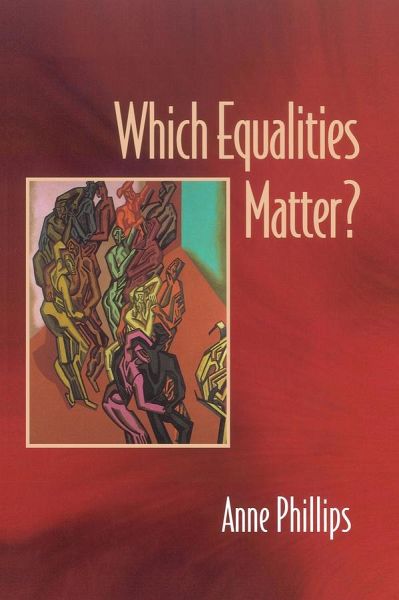
Which Equalities Matter?
Versandkostenfrei!
Versandfertig in über 4 Wochen
25,99 €
inkl. MwSt.

PAYBACK Punkte
13 °P sammeln!
Democracy and democratization are now high on the political agenda, but there is growing indifference to the gap between rich and poor. Political equalities matter more than ever, while economic inequality is accepted almost as a fact of life. It is the separation between economic and political that lies at the heart of this book. Anne Phillips explores the broadening out of debates on democracy to address questions of gender, race, ethnicity, and the status of minority cultures, and the greater emphasis on what can be achieved through political and cultural interventions. This has generated a...
Democracy and democratization are now high on the political agenda, but there is growing indifference to the gap between rich and poor. Political equalities matter more than ever, while economic inequality is accepted almost as a fact of life. It is the separation between economic and political that lies at the heart of this book. Anne Phillips explores the broadening out of debates on democracy to address questions of gender, race, ethnicity, and the status of minority cultures, and the greater emphasis on what can be achieved through political and cultural interventions. This has generated an influential literature on making democracies more politically inclusive, but important new issues about citizenship and difference also threaten to crowd out older economic concerns. In what will be seen as a major contribution to debates on the relationship between struggles for recognition and struggles for redistribution, Anne Phillips employs arguments about recognition to restate the importance of economic equality. The book links the retreat from economic egalitarianism to the idea that equality means recognizing group difference. Despite the best of intentions, this idea contributes to a flawed understanding of citizen equality as compatible with virtually any kind of economic arrangement, and helps turn attention away from the distribution of income and wealth. Which Equalities Matter? engages with one of the most pressing problems of contemporary politics and will be essential reading for anyone who is concerned about the relationship between political and economic equality.


